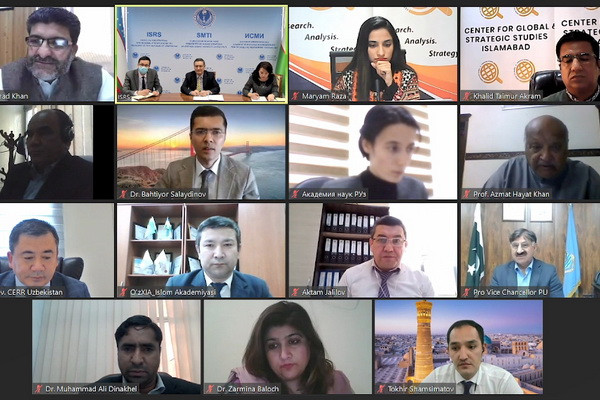Professor Shabir Ahmad Khan: Strengthening the Uzbek-Pakistani dialogue at the highest level is a determining factor in relations between the two countries

"Thanks to the efforts of the leaders of Uzbekistan and Pakistan, in recent years, relations between our countries have reached a qualitatively new level of strategic partnership," said Professor Shabir Ahmad Khan, Director of the Center for Central Asian Studies at Peshawar University, during Uzbek-Pakistani scientific conference on 15 February.
According to him, the trade turnover between the countries increased by 1.5 times in 2021. It was noted that over 40 joint ventures had been set up in the past year alone. In addition, the transit of incoming and outgoing cargo through the Pakistani ports of Gwadar, Karachi and Qasim has been simplified for Uzbekistan.
The expert also noted that Pakistan not only supported the initiative of the President of the Republic of Uzbekistan Shavkat Mirziyoyev to strengthen the interconnectedness between Central and South Asia, but also became an active partner in its implementation. At the same time, the parties are actively cooperating in achieving peace in Afghanistan, which should contribute to its transformation into a key transit hub of interregional significance.
As Shabir Ahmad Khan emphasized, Tashkent and Islamabad are ready to contribute in every possible way to the restoration of trans-regional interconnectedness by increasing economic activity, developing joint transport and transit projects, restoring historical cultural and academic ties.
The online conference on the topic: “New growth points and drivers for the development of Uzbek-Pakistani cooperation in the field of economy, culture and education” was organized by the ISMI and the Center for Global Strategic Studies of Pakistan.
It was attended by professors from Peshawar and Punjab universities. The Uzbek side was represented by experts from the ISMI, the Center for Economic Research and Reforms, the Institute of Culture, the Institute for the Study of Youth Problems and the Training of Promising Personnel, the International Islamic Academy and the Academy of Sciences of Uzbekistan.






